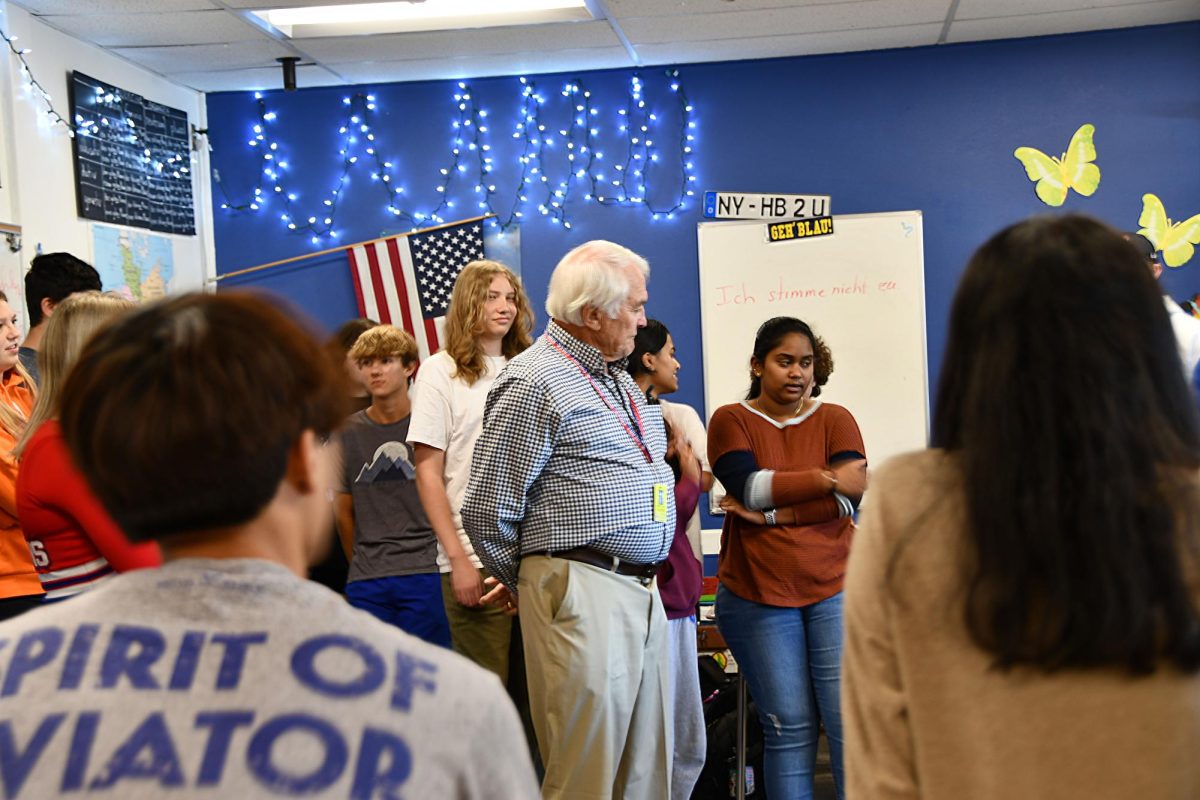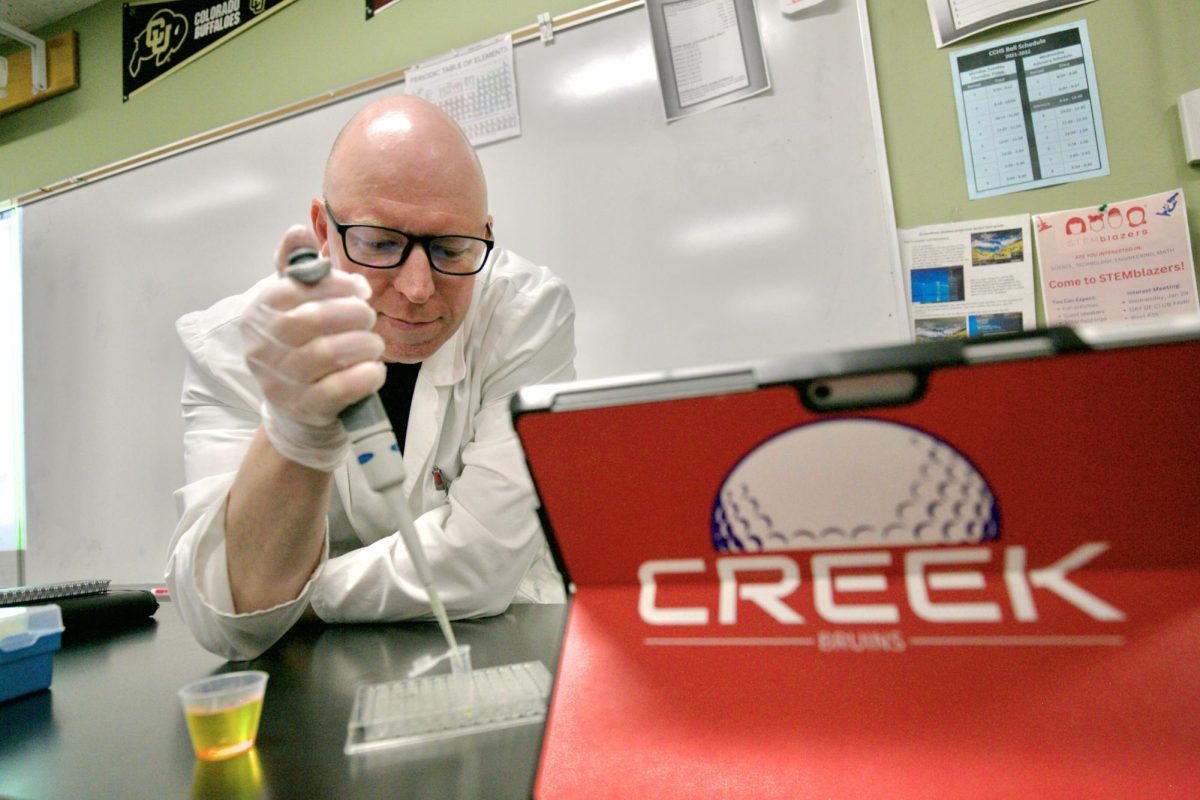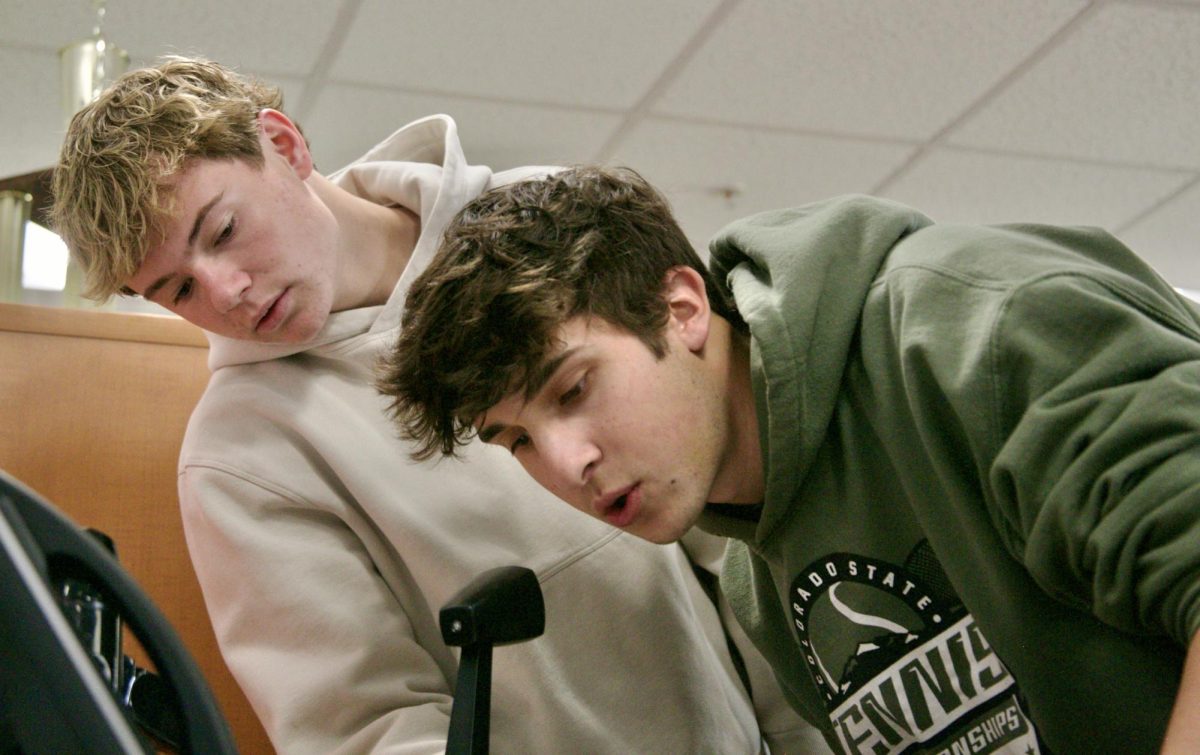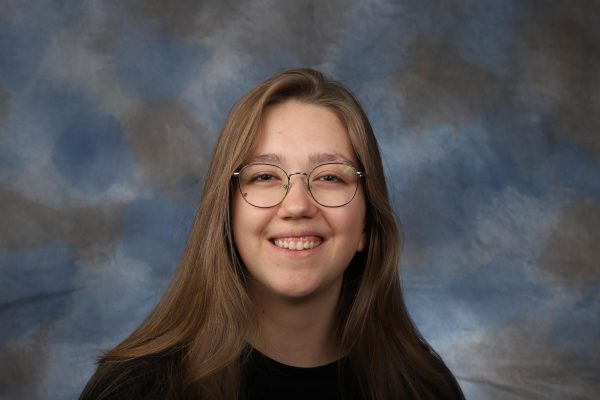German teacher Susanne Smith annually registers students for the Goethe-Institute International German Exam, an official assessment of German abilities recognized by schools and employers worldwide.
After a few years, she realized that there was something unique about Creek students and how they were being taught that led them to score lower on certain areas on the test.
On the listening portions of the test, specifically when the speaker was a man, Creek students were consistently receiving lower scores. They even self-reported having trouble understanding male readers or actors. This was simply because the majority of Creek students’ exposure to the German language was from two German-speaking women, then Susanne Smith and Kersten Schultz, and now Susanne Smith and Lauren Kidd.
“If you’ve only had female teachers, the male voices are difficult and if you’ve only had male teachers, the female voices are difficult [to understand,]” Smith said
It comes down to subtle differences in cadence, speaking habits, or even tone and pitch- all of which can shape the way a student perceives a language. Any virtual listening exercises with male speakers weren’t substantial help either, as those actors were instructed to speak in a strictly uniform manner to not confuse students, something that was little help with the conversational tone that the International German Exam uses. Creek needed the help of a German-speaking man who could dedicate time to uphold authentic conversations with students.
17 years ago, before Creek students had started taking the International German exam, Norbert Frueh, a retired engineer whose children had graduated from Creek, approached Smith with the purpose of finding something “mentally” engaging to do in retirement.
“So I thought, well, I have this knowledge of German, I’m a native German speaker. I’ll see if the German program wants me to participate in their high school.” Frueh said.
Frueh asked her if he could come around and help around the German department, and Smith was apprehensive, ‘You’re not a teacher, you’re just an engineer.’ Smith said. “I suggested [that we] just try it. Let me come to your class and see how it goes.” Frueh told her. “After that first one, she said, ‘Well, yeah, I want you to come back.’”
After German teachers had recognized the value of Frueh and how he could help Creek students, he was asked to come in longer, work with more classes, and adopt a more personalized approach with AP students.
It took time to teach a man who had never worked in education how to interact with a class chock full of teenagers, but Frueh and Smith quickly fell into a rhythm that added variety and enrichment to the class.
“Hearing organic German and having a chance to respond to questions on the spot with Herr Frueh seriously improved not only my German fluency, but helped Creek’s national German Exam scores overall,” Senior Rose Chambers said.
He was even nominated for, and won, the “Colorado Friend of Foreign Languages” award. He also helped in writing and distributing resources to teachers all over the country when the German AP exam was changed.
“It’s quite a difference to be with young people. They have different perspectives and they think differently,” Frueh said. “They sometimes speak in riddles.”









